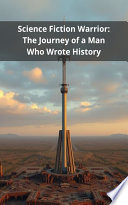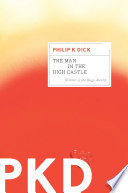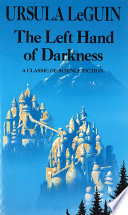Discover our guide to authors like Iain M. Banks and prepare to explore new worlds and complex themes.
Iain M. Banks was a seminal figure in the science fiction genre, renowned for his vivid imagination, complex world-building, and intelligent explorations of political and social issues. His novels often centered around complex societies and interstellar civilizations, where advanced technology, artificial intelligence, and extraterrestrial beings played a central role.
Banks received numerous awards during his lifetime, including the British Science Fiction Association Award, the Hugo Award, and the Nebula Award. In this list, we will explore ten other science fiction and fantasy authors whose works share similarities with the unique style and thematic preoccupations of Iain M. Banks.
For more recommendations, you might also enjoy exploring best dystopian books, authors like George Orwell, best science fiction books.
Why Iain M. Banks Matters More Than Ever in 2025
In our current era of rapid AI development and space exploration, Banks’s Culture novels feel prophetic rather than fantastical. His exploration of post-scarcity societies, benevolent AI governance, and the ethics of intervention resonates deeply with contemporary debates about technology, inequality, and global responsibility.
What made Banks special wasn’t just his technical imagination—it was his ability to ask hard questions about power, morality, and what it means to be human in an increasingly complex universe. The authors below share this intellectual rigor, combining spectacular world-building with philosophical depth that makes great science fiction both entertaining and enlightening.
10 Must-Read Authors Like Iain M. Banks
1. Philip K. Dick, 1928 - 1982
Philip K. Dick was an acclaimed American science fiction author whose works delved into complex philosophical, social, and political themes. He gained worldwide recognition with his novel The Man in the High Castle. He followed that up with Do Androids Dream of Electric Sheep?, later adapted into the iconic movie Blade Runner.
Apart from his literary achievements, Dick was known in close circles for his alleged paranormal experiences, which included eerie visions and bizarre encounters with extraterrestrial entities. Dick’s work has since been adapted into numerous films and television series.
Why Banks fans love Dick: Both authors excel at questioning the nature of reality and exploring how technology shapes consciousness. Their protagonists often grapple with identity and authenticity in worlds where nothing is quite what it seems.
“Perhaps if you know you are insane then you are not insane. Or you are becoming sane, finally. Waking up.” — Philip K. Dick, The Man in the High Castle
2. Ursula K. Le Guin, 1929 - 2018
Recipient of both the Hugo and Nebula awards, Ursula K. Le Guin was a renowned American author best known for her award-winning novel The Left Hand of Darkness. Her works, like those of Iain M. Banks, often explored complex social and political issues through the lens of science fiction.
Interestingly, Le Guin was the daughter of a well-known anthropologist, and her upbringing in a household of academia greatly influenced her writing style later in life.
The Anthropological Approach: Both Le Guin and Banks approached alien societies with the eye of cultural anthropologists, creating believable civilizations with their own internal logic, customs, and moral frameworks. Their worlds feel lived-in because they understand how culture shapes individual behavior.
“It is good to have an end to journey towards; but it is the journey that matters, in the end.” — Ursula K. Le Guin, The Left Hand of Darkness
3. Neal Stephenson, 1959 -
Neal Stephenson is an American writer known for his thought-provoking science fiction novels, such as Snow Crash. Like Iain M. Banks, Stephenson’s works often feature intricate world-building and explore complex political and social issues.
True to his passion for world-building, Stephenson is a skilled programmer and, in the 1990s, helped to found a company that created a virtual world for gamers. He continues to work closely with software engineers on the cusp of leading technology.
Technical Authenticity: Both authors bring genuine technical knowledge to their fiction. Stephenson’s programming background and Banks’s understanding of orbital mechanics give their speculative technologies credible foundations, making the impossible feel inevitable.
“The world is full of power and energy and a person can go far by just skimming off a tiny bit of it.” — Neal Stephenson, Snow Crash
4. Kim Stanley Robinson, 1952 -
Award-winning author Kim Stanley Robinson has received critical praise for his scientifically credible and finely produced science fiction novels, such as Red Mars. His writings, like those of Iain M. Banks, delve into complex social and political concerns and environmental ones.
Robinson’s insatiable hunger for information has driven him to visit some of the world’s most remote locations, such as Antarctica, in search of first-hand experiences to include in his writing. This lends a taste of realism to Robinson’s works that fans appreciate.
Scientific Rigor: Robinson and Banks share a commitment to making their futures feel scientifically plausible. Both authors understand that great science fiction isn’t about gadgets—it’s about how technological and social changes reshape human relationships and societies.
“The urge to excel and the urge to lead aren’t the same. Sometimes I think they may be opposites.” — Kim Stanley Robinson, Red Mars
5. Octavia Butler, 1947 - 2006
American science fiction legend Octavia Butler is most remembered for her groundbreaking work Kindred. Her books, like Iain M. Banks’ works, frequently explore nuanced social and political topics, emphasizing racial and gender inequality.
Notably, dyslexia was a defining factor in Butler’s personal life, but she overcame it through pure willpower and perseverance. In a twist of fortune, Butler was heavily bullied as a child, forcing her to retreat into reading, which propelled her into a career as an award-winning author.
Social Commentary: Butler and Banks both understood that the best science fiction uses fantastic settings to examine real-world power structures. Their alien encounters and future societies serve as mirrors reflecting contemporary injustices and possibilities for change.
“There was no shame in raping a black woman, but there could be shame in loving one.” — Octavia Butler, Kindred
6. William Gibson, 1948 -
The American-Canadian author William Gibson is widely regarded as a pioneer in the field of cyberpunk with his debut novel Neuromancer. His works are similar to Iain M. Banks’ work in that they deal mostly with dystopian themes and examine the relationship between technology and society.
Gibson’s childhood was a breeding ground for the dystopian worlds he would later describe in his novels. His family often moved because of his father’s job, who then died while away on a business trip. After that, his mother suffered from anxiety and depression while Gibson struggled as an unpopular teenager who never really fit in.
Technology and Humanity: Both Gibson and Banks excel at exploring how advanced technology changes human consciousness and social structures. Their protagonists navigate worlds where the line between human and artificial intelligence becomes increasingly blurred.
“His ugliness was the stuff of legend. In an age of affordable beauty, there was something heraldic about his lack of it.” — William Gibson, Neuromancer
7. Gene Wolfe, 1931 - 2019
Gene Wolfe was a distinguished American author of science fiction and fantasy. His acclaimed novel series, The Book of the New Sun, is among his most notable works. Like the writings of Iain M. Banks, his plot lines often revolved around intricate themes of politics and authority while also showcasing his unique literary style and sophisticated narrative approach to the genre.
Wolfe was the deserving recipient of numerous coveted honors, including the prestigious Nebula and World Fantasy Awards.
Literary Sophistication: Wolfe and Banks both brought literary sensibilities to genre fiction. Their works reward careful reading, featuring unreliable narrators, hidden meanings, and prose that operates on multiple levels simultaneously.
“I no longer knew in what direction the surface lay, and I was no longer conscious of the water as water.” — Gene Wolfe, The Book of the New Sun
8. Frank Herbert, 1920 - 1986
Frank Herbert was a renowned science fiction author from the United States, mainly celebrated for his masterpiece Dune, which was twice adapted into film. His style, reminiscent of the works of Iain M. Banks, is characterized by intricate world-building, multi-layered political systems, and fascinating characters.
Dune was a trailblazing work that won several highly-coveted awards, including the Hugo and Nebula Awards, cementing Herbert’s status as a leading figure in the genre. An early reader, Herbert could read an entire newspaper by age five and subsequently began his writing career as a journalist before turning to fiction.
Political Complexity: Herbert and Banks both created intricate political systems that feel organic rather than imposed. Their galactic civilizations operate according to believable power structures, economic systems, and cultural tensions that drive compelling narratives.
“Deep in the human unconscious is a pervasive need for a logical universe that makes sense. But the real universe is always one step beyond logic.” — Frank Herbert, Dune
9. China Miéville, 1972 -
China Miéville is a prolific British author recognized for his contributions to the science fiction and fantasy genres, with his novel Perdido Street Station being among his most famous works. Much like Iain M. Banks, his writing confronts complex issues of politics and society yet often defies categorization.
Miéville is known for his extraordinary creativity, vividly imaginative style, and ingenious use of language, which has won him numerous awards and critical acclaim. Miéville is very politically active from a socialist point of view and often integrates politics into his works.
Weird Politics: Both Miéville and Banks refuse to separate politics from storytelling. Their fantastical elements serve as metaphors for real-world power structures, creating fiction that’s both entertaining and ideologically engaged without being preachy.
“The costermonger below the descending basket looked up into flat sunlight and a shower of brick particles.” — China Miéville, Perdido Street Station
10. Ted Chiang, 1967 -
Ted Chiang is an accomplished science fiction author from the U.S. whose celebrated work has earned him wide critical acclaim and a broad reader base. Among his many other works, Chiang is the author of Stories of Your Life and Others, which includes “Story of Your Life,” adapted into the movie Arrival.
Much like Iain M. Banks, his writing style centers around exploring complex, mind-bending themes while pushing the genre’s boundaries in new and exciting ways. Chiang’s stories are renowned for their literary depth, thought-provoking philosophical musings, and masterful technical precision.
Philosophical Precision: Chiang and Banks both approach science fiction as a vehicle for philosophical exploration. Their stories use speculative elements to examine consciousness, free will, communication, and what it means to be human in an infinite universe.
“For the first time, he knew night for what it was: the shadow of the earth itself, cast against the sky.” — Ted Chiang, Stories of Your Life and Others
Finding Your Next Mind-Expanding Read
These authors share Banks’s commitment to intelligent science fiction that challenges readers while entertaining them. Whether you’re drawn to Dick’s reality-bending paranoia, Le Guin’s anthropological depth, or Chiang’s philosophical precision, each offers the intellectual rigor that made Banks’s Culture novels so compelling.
Where to start: If you love Banks’s political complexity, try Miéville or Le Guin. For technological speculation, explore Stephenson or Gibson. If you want literary sophistication, Wolfe and Chiang deliver prose that rewards careful attention.
The best science fiction doesn’t just predict the future—it helps us understand the present by imagining how things could be different. These authors, like Banks, use fantastic settings to explore the deepest questions about consciousness, society, and what we owe each other in an incomprehensibly vast universe.





